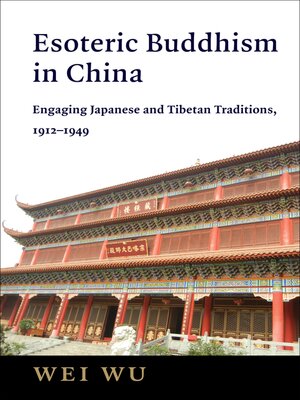Esoteric Buddhism in China
ebook ∣ Engaging Japanese and Tibetan Traditions, 1912–1949 · The Sheng Yen Series in Chinese Buddhist Studies
By Wei Wu

Sign up to save your library
With an OverDrive account, you can save your favorite libraries for at-a-glance information about availability. Find out more about OverDrive accounts.
Find this title in Libby, the library reading app by OverDrive.



Search for a digital library with this title
Title found at these libraries:
| Library Name | Distance |
|---|---|
| Loading... |
During the Republican period (1912–1949) and after, many Chinese Buddhists sought inspiration from non-Chinese Buddhist traditions, showing a particular interest in esoteric teachings. What made these Buddhists dissatisfied with Chinese Buddhism, and what did they think other Buddhist traditions could offer? Which elements did they choose to follow, and which ones did they disregard? And how do their experiences recast the wider story of twentieth-century pan-Asian Buddhist reform movements?
Based on a wide range of previously unexplored Chinese sources, this book explores how esoteric Buddhist traditions have shaped the Chinese religious landscape. Wei Wu examines cross-cultural religious transmission of ideas from Japanese and Tibetan traditions, considering the various esoteric currents within Chinese Buddhist communities and how Chinese individuals and groups engaged with newly translated ideas and practices. She argues that Chinese Buddhists' assimilation of doctrinal, ritual, and institutional elements of Tibetan and Japanese esoteric Buddhism was not a simple replication but an active process of creating new meanings. Their visions of Buddhism in the modern world, as well as early twentieth-century discourses of nation building and religious reform, shaped the reception of esoteric traditions. By analyzing the Chinese interpretation and strategic adaptations of esoteric Buddhism, this book sheds new light on the intellectual development, ritual performances, and institutional formations of Chinese Buddhism in the twentieth century.







